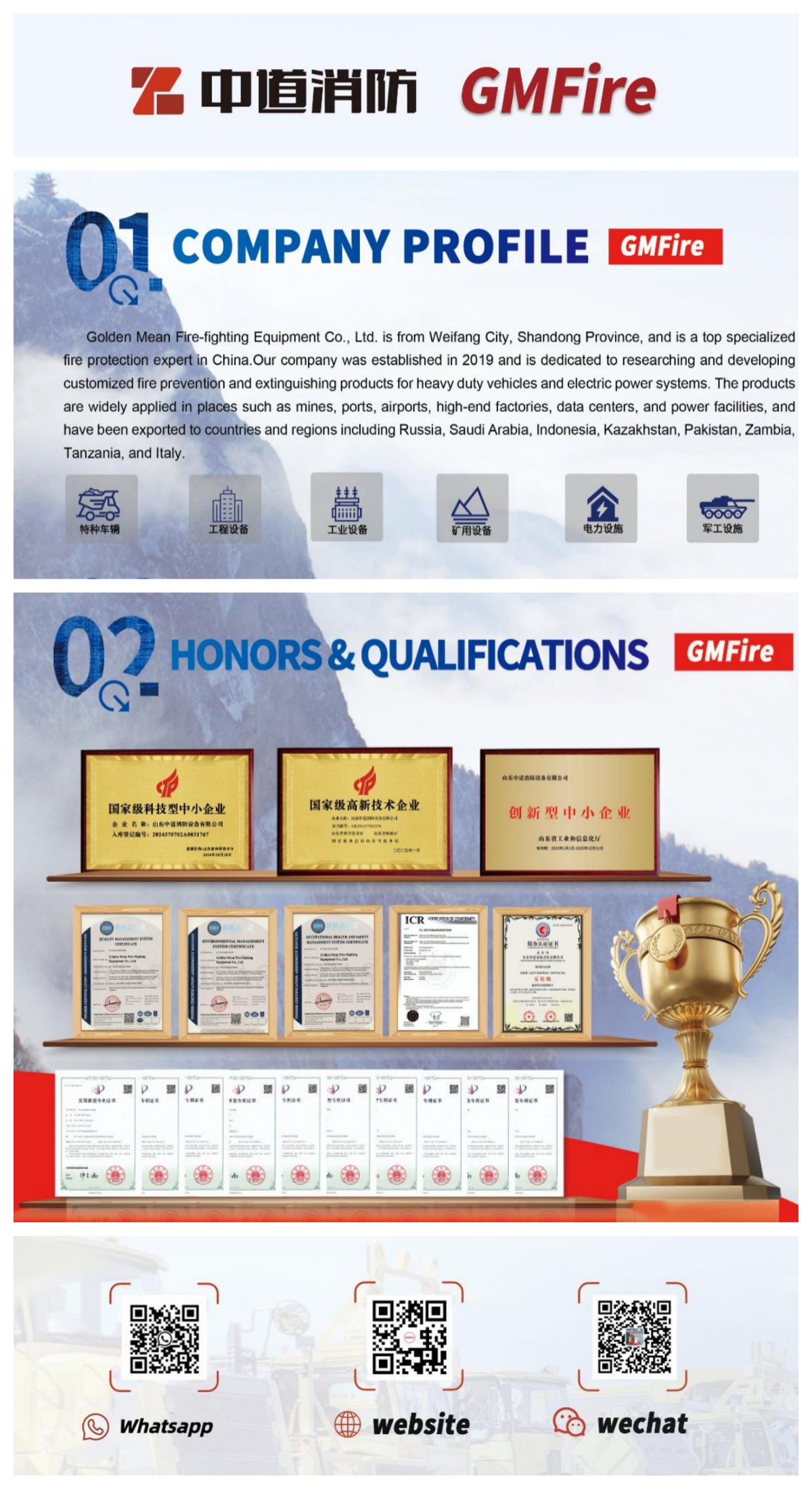
The port reach stacker automatic fire extinguishing device is developed to adapt to the port vehicle fire safety guarantee system. It applies advanced data analysis, processing and control technology, integrating detection, transmission, analysis, early warning, driving and fire extinguishing. It has high fire detection sensitivity, Features of good fire extinguishing performance. The port reachstacker automatic fire extinguishing system can dynamically track, detect, record, analyze and process fires in the port flow machine protection area in real time, thereby realizing autonomous fire extinguishing functions in an unattended state.
Features:
1. The port reach stacker automatic fire extinguishing system is currently a commonly used fire protection product for port flow machinery vehicles such as reach stackers, forklifts, gantry cranes, quay cranes, tire cranes, ship loaders, cranes, tractors, straddle carriers, forklifts, etc. It adopts a remote data transmission controller, takes the safety of port vehicles as the foundation, and combines our company's experience in fire extinguishing of port flow machines during the New Year to develop the new automatic fire extinguishing device involved.
2. All pipelines and accessories are professionally processed and have the characteristics of strong corrosion resistance, high temperature/high humidity resistance, stable and reliable fire control and extinguishing.
3. It can realize the key protection of a single protection zone, and can also realize the simultaneous linkage protection of multiple protection zones.
4. During the fire signal processing process, all fire signals collected by the detector are processed into digital signals, which have the characteristics of strong anti-interference ability, large amount of information, and reliable and accurate control.
5. It can be used for automatic fire monitoring and fire extinguishing in unmanned conditions, reducing personnel investment costs and improving vehicle safety levels.





























































































